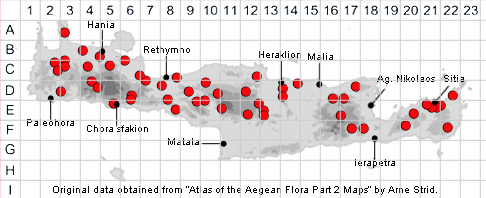
HEDERA HELIX subsp. HELIX
Family and Genus:- See- ARALIACEAE
Common Names:- Ivy
Homotypic Synonyms:- Hedera communis, Hedera helix var. vulgaris, Hedera
poetarum, Hedera poetica.
Meaning:- Hedera (L) Ivy.
Helix (Gr) An ancient name for twining plants.
General description:- Woody stems, climbing or procumbent, clinging to rocks
and trees, with numerous small roots.
Leaves:-
1) 50-100 mm long, with a 15-20 mm. petiole, alternate.
a) juvenile leaves, divided to the base into 5 separate lobed leaflets on the
creeping and climbing stems.
b) adult leaves, unlobed, cordate on fertile flowering stems exposed to full sun,
usually high in the crowns of trees or the top of rock faces. dark green,
smooth.
Flower:-
1) Individually small, in 3-5c m diam, umbels, greenish-yellow, very rich in nectar.
Fruit:-
1) Berries, 8-10mm, containing 1-5 seeds, black.
Key features:-
1) Leaves, on non-flowering shoots usually less than 15 cm, distinctly lobed.
2) Hairs, on young shoots and inflorescence 0·15-0·4 mm diam., stellate, mostly
with 6-10 squarrose rays, united only at the extreme base.
3) Ripe fruit, black
Habitat:- Rock faces, walls, trees.
Distribution:- Widespread and common throughout the Mediterranean. Widespread
and common on Crete.
Flowering time:- Apr-July.
Photo by:- Steve Lenton
SPECIES DESCRIPTION
